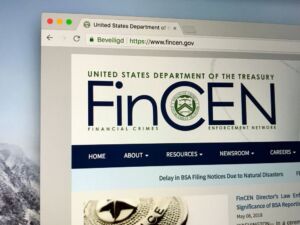BOI Reporting: Preparing for the January 2025 Deadline
U.S. businesses face a fast-approaching deadline for Beneficial Ownership Information (BOI) reporting. By January 1, 2025, companies must submit BOI reports to the Financial Crimes Enforcement Network (FinCEN) under the Corporate Transparency Act (CTA). The goal of this mandate is to increase transparency and help combat money laundering, terrorism financing, and other illicit activities. An estimated 32.6 million businesses are expected to file BOI reports by the end of the year.
With the deadline drawing closer, it’s up to business owners to understand whether they must file, what information is required, and the consequences of missing the deadline. To help clients, prospects, and others, WhippleWood CPAs has provided a summary of the key details.
Who Must File BOI Reports?
BOI reporting applies to reporting companies — domestic corporations, LLCs, and other entities formed in the U.S., as well as foreign entities registered to do business in the U.S. These companies must disclose their beneficial owners, which includes individuals who own at least 25% of the company or have substantial control over its operations. Certain companies, such as publicly traded entities and many nonprofits, are exempt from filing.
What Information Is Required?
Each beneficial owner must be identified by their full legal name, date of birth, residential address, and a government-issued identification number (such as a driver’s license or passport). Businesses are responsible for submitting this information through FinCEN’s secure online system. If any changes occur, such as new ownership, an updated report must be submitted within 30 days. Given the short timeline it is important for management to understand what specific information about owners needs to be provided. At the same time, it also means there must be an established process to report these details within the required timeframe.
Common Misconceptions About BOI Reporting
Many business owners mistakenly believe that BOI reporting requirements do not apply to them. A common misconception is that a business is too small or does not generate enough revenue to meet the criteria. However, BOI reporting rules are not based on a company’s size, employee count, or revenue levels. If a business is a corporation, LLC, or similar entity formed or registered in the U.S., it is likely subject to the reporting requirements unless it qualifies for one of the 23 specific exemptions, such as being publicly traded or a nonprofit organization.
Business owners should not assume that small or minimally operational companies are exempt. A careful review of the rules is necessary to determine whether they must file to avoid penalties for non-compliance.
- Key Deadlines for Filing – The January 1, 2025 deadline applies to businesses formed or registered before this date. For companies created between January 1, 2024, and January 1, 2025, the report must be filed within 90 days of formation. After January 1, 2025, newly formed businesses will have 30 days to comply.
- Non-Compliance Penalties – Failing to file BOI reports by the deadline can lead to daily civil penalties until compliance is achieved. Intentional violations, such as providing false information, could result in criminal penalties. However, businesses that make unintentional errors and correct them quickly may avoid severe penalties.
- Avoiding Scams – Unfortunately, scammers have begun targeting businesses unfamiliar with BOI reporting. Be cautious of suspicious emails, QR codes, or requests for payment. FinCEN does not charge fees for BOI filings and does not send compliance notices asking for payment. Any correspondence referring to Form 4022, Important Compliance Notice, or a fake government entity should be ignored.
Contact Us
With the January 2025 deadline rapidly approaching, businesses will want to act now to gather the necessary information for compliance. Failure to comply with this requirement will result in the assessment of penalties, often significant. For additional information call 303-989-7600 or click here to contact us.
About the Author

Rick Whipple CPA
Rick’s career in public accounting began in 1978. He was a co-founder of WhippleWood CPAs in 1981 and became its CEO in 2004. His experience as an entrepreneur and small business owner over the span of 40 years is vital to his success as a CPA and small business advisor.



